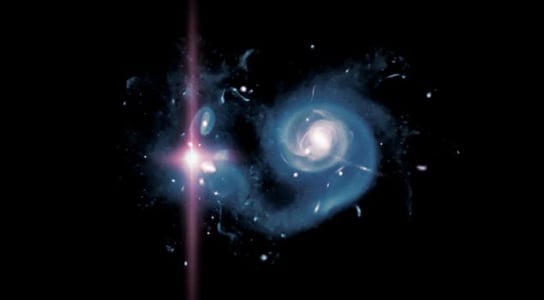
Simulation of an early galaxy hosting a superluminous supernova. Credit: Adrian Malec and Marie Martig (Swinburne University)
Astronomers have discovered a pair of superluminous supernovae, which are more than 10 billion years old. The Universe was only 3.75 billion years old back then. Of the pair, one is more remote and ranks as the most distant supernova ever discovered.
Astronomers used two telescopes atop Mauna Kea in Hawaii to find these supernovae, and they were able to spot them only because of the extreme luminosity of the supernovae. The blasts might have signaled the death of stars 100 times as massive as Sol. Although such superluminous explosions have been spotted relatively nearby universe, they ought to be more common in the early universe, when there were more supermassive stars.
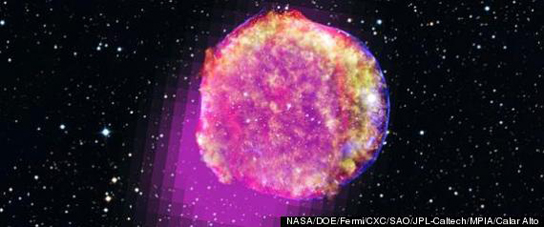
Credit: NASA/Fermi
The researchers published their findings in the journal Nature. Jeff Cooke, from the Swinburne University of Technology in Australia, and his colleagues made the discovery. The supernovae pair, which have been designated as SN 2213-1745 and SN 1000+0216, were identified from deep sky images taken at the 3.6-meter (12-foot) Canada-France-Hawaii telescope between 2003 and 2008.
After the supernovae were identified, the researchers used the 10-meter Keck I telescope to make spectral measurements of the galaxies where the supernovae were discovered. SN 2213-1745 has a redshift of 2.05, implying that the supernova’s progenitor exploded 10.4 billion years ago. Its extreme brightness and slow fading match up with the expected properties of pair-instability supernova, when the death of a massive star is brought on by energetic gamma rays giving off pairs of matter and antimatter particles. The researchers estimate that this star may have been as massive as 250 suns.
SN 1000+0216 lies at a redshift of 3.9, implying that it occurred some 12 billion years ago. The data on this supernova is too limited to determine the exact mechanism behind it.
Reference: “Superluminous supernovae at redshifts of 2.05 and 3.90” by Jeff Cooke, Mark Sullivan, Avishay Gal-Yam, Elizabeth J. Barton, Raymond G. Carlberg, Emma V. Ryan-Weber, Chuck Horst, Yuuki Omori and C. Gonzalo Díaz, 31 October 2012, Nature.
DOI: 10.1038/nature11521

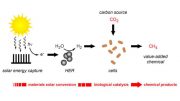
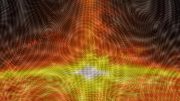
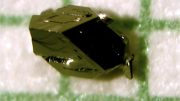


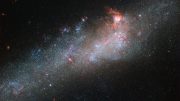


Be the first to comment on "12 Billion-Year Old Supernova Discovered by Astronomers"